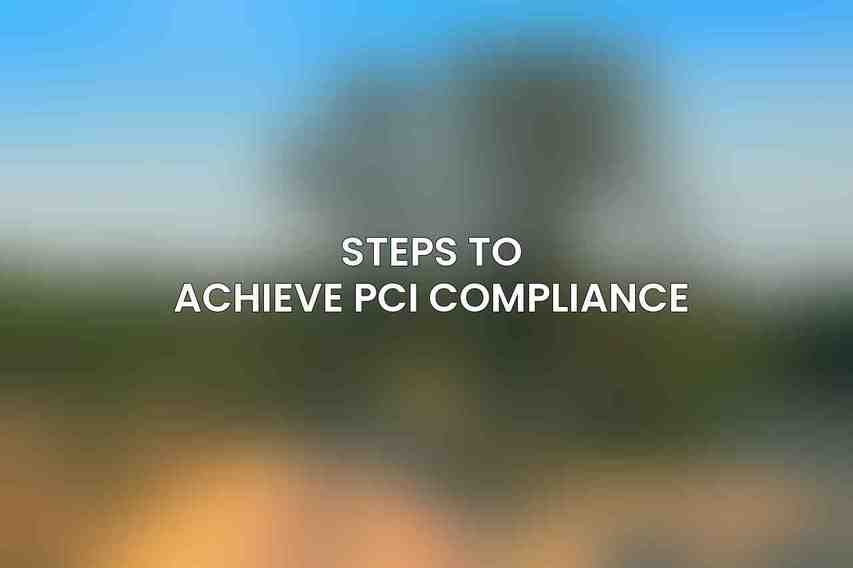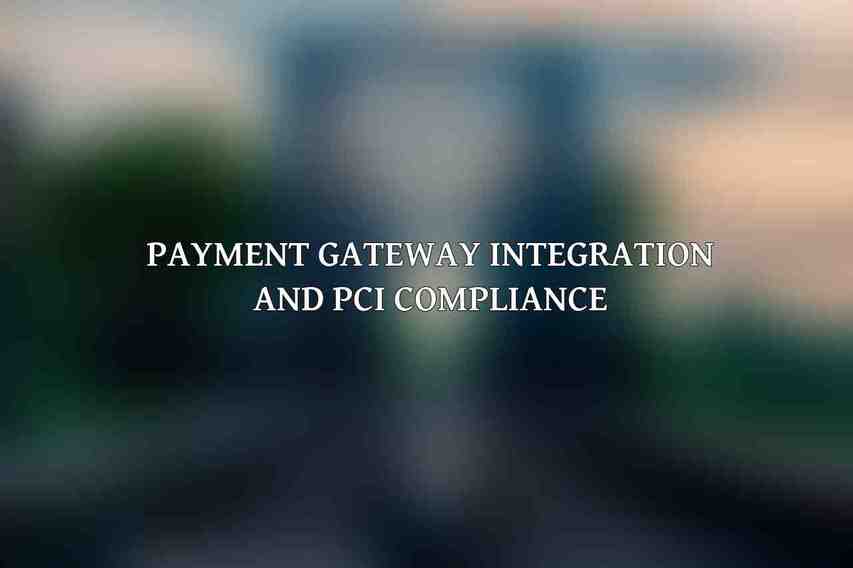The importance of pci compliance cannot be emphasized enough for businesses that accept electronic payments. ensuring the security and integrity of sensitive consumer data is paramount in maintaining trust and credibility with customers. the payment card industry data security standard (pci dss) sets the guidelines and requirements for securely handling payment card information and safeguarding against data breaches. adhering to these standards is not only a best practice but also a legal requirement for businesses.
Benefits of PCI Compliance
Achieving PCI compliance offers numerous benefits for businesses beyond just meeting regulatory requirements. Some of the key advantages include:
- Protection of Sensitive Consumer Data: Implementing PCI DSS controls helps protect customer data such as credit card numbers, addresses, and other personal information from falling into the wrong hands.
- Reduced Risk of Data Breaches and Financial Losses: By following the PCI DSS guidelines, businesses can significantly reduce the risk of data breaches, which can result in costly financial losses and damage to reputation.
- Improved Reputation and Customer Trust: Demonstrating a commitment to data security through PCI compliance enhances the reputation of businesses and fosters trust among consumers.
- Compliance with Industry Regulations and Mandates: Meeting PCI DSS requirements ensures that businesses comply with industry regulations and avoid potential penalties and sanctions for non-compliance.
Steps to Achieve PCI Compliance

Achieving PCI compliance involves a series of structured steps to establish and maintain a secure payment environment. Here are the key steps businesses should follow: See our take on Best Practices for Secure Payment Gateway APIs Integration
Step 1: Assess Current Security Posture
- Identify all systems and processes that handle, process, or store cardholder data.
- Conduct a thorough security assessment to identify vulnerabilities and risks that need to be addressed.
Step 2: Implement Required Controls
- Implement and maintain necessary security controls as defined by the PCI DSS, such as firewalls, intrusion detection systems, antivirus software, and secure coding practices.
Step 3: Regular Monitoring and Testing
- Continuously monitor network traffic and systems for unauthorized activity.
- Conduct regular penetration testing and vulnerability scans to identify and remedy any security gaps.
Step 4: Maintain Compliance
- Regularly review and update security policies and procedures to adapt to evolving threats.
- Train employees on PCI DSS requirements and best practices to ensure ongoing compliance.
Payment Gateway Integration and PCI Compliance

Payment gateways play a crucial role in securely processing online transactions and protecting sensitive cardholder data. When integrating payment gateways into e-commerce platforms or point-of-sale systems, businesses must ensure compliance with PCI DSS requirements to maintain a secure payment environment. Implementing best practices for securing payment gateway integration is essential to prevent data breaches and safeguard customer information. Check out our insights into Ensuring GDPR Compliance in Payment Gateway Integration
PCI DSS Requirements for Payment Gateways
Compliance with PCI DSS involves meeting a set of specific requirements outlined by the standard. Some of the key requirements for payment gateways include:
| Requirement | Description |
|---|---|
| Requirement 1 | Install and maintain a firewall configuration to protect cardholder data |
| Requirement 2 | Do not use vendor-supplied default system passwords and other security parameters |
| Requirement 3 | Protect stored cardholder data |
| Requirement 4 | Encrypt transmission of cardholder data across public networks |
Continuing with remaining requirements…
Consequences of Non-Compliance
Failure to adhere to PCI compliance requirements can have serious consequences for businesses, including:
- Legal Penalties and Fines: Non-compliance with PCI DSS may lead to regulatory fines and penalties imposed by card brands and governing bodies.
- Data Breaches and Financial Losses: Vulnerabilities resulting from non-compliance can expose businesses to data breaches, resulting in financial losses and reputational damage.
- Damage to Reputation and Customer Trust: Incidents of non-compliance and data breaches can erode customer trust and negatively impact a business’s reputation in the marketplace.
Resources and Support
To facilitate PCI compliance efforts, businesses can leverage resources and support from various entities, including:
- PCI Security Standards Council (PCI SSC): The PCI SSC provides guidance, resources, and training to help businesses understand and implement PCI DSS requirements.
- Qualified Security Assessors (QSAs): QSAs are certified professionals who assist organizations in assessing their compliance status and identifying areas for improvement.
- Third-party Compliance Services: External compliance service providers offer expertise and assistance in achieving and maintaining PCI compliance, relieving businesses of the burden of managing compliance internally.
businesses can enhance their payment gateway integration practices, achieve and maintain PCI compliance, and ultimately safeguard the sensitive data of their customers. Embracing a proactive approach to data security and compliance is not only a business imperative but also a commitment to protecting consumer trust and loyalty in an increasingly digital world.
Frequently Asked Questions
What is PCI compliance?
PCI compliance refers to the Payment Card Industry Data Security Standard (PCI DSS) which is a set of security standards designed to ensure that all companies that accept, process, store, or transmit credit card information maintain a secure environment.
Why is PCI compliance important in payment gateway integration?
PCI compliance is crucial in payment gateway integration as it helps protect sensitive payment card data and prevent data breaches. Compliance with PCI standards also helps build trust with customers and avoid costly fines and penalties. Find out about Top Fraud Detection Techniques for Secure Payment Gateway Integration
Are there different levels of PCI compliance?
Yes, there are different levels of PCI compliance based on the number of transactions processed annually by a company. The levels range from level 1 (highest) to level 4 (lowest) with specific requirements for each level.
How can I ensure PCI compliance in payment gateway integration?
To ensure PCI compliance in payment gateway integration, companies should implement security measures such as encryption, regular security assessments, network monitoring, and strict access controls. It is also recommended to work with PCI-compliant payment gateway providers.
What are the consequences of non-compliance with PCI standards?
Non-compliance with PCI standards can result in financial penalties, restrictions on payment processing, reputational damage, and potential legal action. It is essential for companies to prioritize PCI compliance to avoid these consequences.

